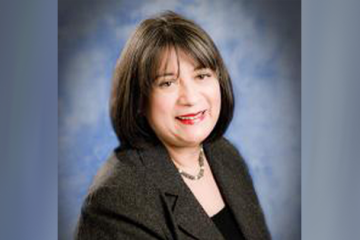Parents are often given dubious advice about their children’s reading: Let them read whatever they enjoy, as we must encourage literacy. This is a strangely laissez-faire attitude to take towards such a fundamentally formative activity. No decent school counsels parents to let their children watch or listen to whatever they want, so why is reading different? I suppose that educators recognize that reading is more intellectually active and challenging than other pursuits, so they want to encourage it in any form. But the advice rests on an underlying view of reading (that it is primarily a technical skill) that misses the profound importance of literature in a child’s social, emotional, and moral development.
Great literature—including, of course, great children’s literature—aims to bring us to a deeper understanding of the meaning of human experience. It helps us to learn to see the difference between good and evil and to respond appropriately. Whether we are young or old, reading stories changes us. And for children especially, reading stories helps to form their character—in particular, the development of their emotions and pleasures so that they respond to what is good and evil appropriately. The experience of great literature is an indispensable part of education.
The key to understanding the transformative power of literature is to focus on how it shapes a child’s moral imagination. Reading or hearing stories is not a didactic lesson that conveys rules and principles to live by, but an absorbing experience that children undergo and that can leave long-lasting impressions on them. In great literature, characters make choices between right and wrong, they face dangers, threats, and other harms, as well as opportunities, choices, and temptations. They sometimes find themselves in extraordinary circumstances that call forth heroic virtues in them or that may bring out the worst in them. These stories often contain highly symbolic and even fantastical elements that stir wonder and awe in the child, drawing him or her deeply into another world where they can observe the action of others and learn from the drama that unfolds. Reading great fiction and literary nonfiction (such as biography) helps children to see reality in a deeper way, to see that vanity makes people ugly, that greediness leads to miserable loneliness, and that true love demands sacrifices.
It is critically important, then, not only that we teach literature, but that we teach better literature. While your child might enjoy reading the Captain Underpants series, that sort of reading is not feeding your child’s mind and imagination well. It is the educational equivalent of junk food (which, yes, kids enjoy, and is fine is small doses). Classic children’s literature, by contrast, consists of books and stories that have stood the test of time and have appealed to children (and their parents!) for generations, and in many cases, even across the centuries and millennia. The Tales of King Arthur and his Knights of the Round Table, Arabian Nights, the folklore of the Brothers Grimm, the fairy tales of Hans Christian Anderson, and even epic poems like the “Odyssey” and “Beowulf” (there are wonderful children’s versions of these) should be read alongside The Hobbit, The Princess and the Goblin, The Wind in the Willows, Charlotte’s Web, Number the Stars, Roll of Thunder, Hear My Cry, Wonder and other, more contemporary children’s classics.
Good lists of classical literature for children aren’t hard to find. For example, Sarah Bond, an associate professor of History at the University of Iowa, compiled one for the Society for Classical Studies. Simply Charlotte Mason also has one. The Jubilee Centre at the University of Birmingham published a great report on teaching classical literature with an eye to virtue, and Hillsdale College offers an informative (and free) online course on classic children’s literature.
Sometimes parents say things like: My children don’t like classical literature, what is the point in forcing it on them? While this is not my experience, I would ask what sort of advice we would give to parents of children who dislike fruits and vegetables. After all, minds and hearts need to be trained up in the proper pleasures just as much as palates do. No responsible parent would just give in to a child who never wanted to eat fruits and vegetables; rather, they would work hard to figure out how to prepare them in ways their children can enjoy, and they would keep trying different fruits and vegetables until they found some their children do enjoy, then gradually introduce them to others.
The same should be true for literature: Parents and schools need to find ways to make these stories palatable and appealing to those children who are not naturally drawn to them. Our hearts and imaginations need to be well fed just as much as our bodies do. If your child isn’t interested in one story—try a different one! I also encourage parents to read the stories with their children, especially younger children, and to talk about them with them. Classical children’s literature is just as delightful to adults (and older siblings!), and your children will pick up on your own excitement and interest. Your children want to spend this time with you, I promise!
Regardless of contemporary advice, children should not be left to read whatever they want, either inside or outside of school. They need guidance in choosing great books, and they need parents, teachers, and schools that recognize the fundamental role that literature plays in their moral, social, and emotional development. Children must be taught not simply to read, but to read




